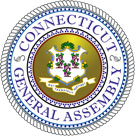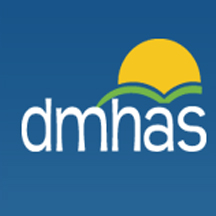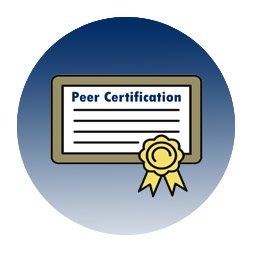
Peer Support News, what you should know entering 2023.
In 2017 the Substance Abuse and Mental Health Services Administration (SAMHSA) put together a beautiful presentation about people with lived experience in the mental health and addiction services workforce. It talks about the concept of peer support, how it can be applied in the modern mental health and addiction treatment setting, and the life-changing role a peer can play in recovery. The presentation was appropriately named, Value of Peers.
In the same year, 2017, a Bill was raised to advance peer support here in Connecticut. House Bill 6887: An Act Concerning Mental Health Care Services and Substance Abuse Services Provided by Certified Peer Counselors. H.B. 6887 started the movement towards creating the task force, which was supposed to have materialized after the 2021 legislative session, but never did.

We want to draw your attention to the wording of the 2017 bill, specifically the term “Certified Peer Counselors” in the bill’s title. Traditionally, a counselor can bill for their services in private practice, while a certified peer specialist may not. As we enter 2023, The Department of Mental Health and Addiction Services is still not heading in that direction with its restructuring of peer certification guidelines and requirements.
DMHAS’s Office of Recovery and Community Affairs makes it clear on the FAQ portion of their website. Two questions; the first is: Can peers begin opening their own practices? The second: Can you operate on your own? Both answered with the same sentence, Peer Recovery Support Certification is different from licensure by DPH as an independent practitioner (which is required in the industry for operation of “private practice”).
This issue is important to many peers around the state. As we addressed in the two March 2022 stakeholders meetings, which took place via Zoom, there is a shortage of good-paying jobs for anyone in the peer support role. The one overwhelming statement from the peer community is that we should have more control over our futures. How important is this to DMHAS? Out of the 47 questions answered on the FAQ page, number 46 is: Can peers begin opening their own practices? And last, at number 47, Can you operate on your own? Generally, questions like this are answered in the order of importance. A person could argue that this shows what matters to the peer community and what matters to DMHAS are not aligned.
The bottom line is that peers who become certified and choose to start a career believe that they should be held to professional standards and peers should follow a strict code of ethics. We believe peers should be educated in core competencies and continue their education throughout their careers. We believe peers should do everything in their power to protect the privacy of the people we work with and follow all laws pertaining to the practice of mental health and addiction recovery support.
Page 1
One of the critical obstacles we see in the workforce is that most people with a “professional” credential, the traditional treatment team members, only look at our education. To them, our lived experience will only ever be a side effect of a mental illness or addiction. Without our lived experience, we are not peers, and without our lived experience, we can not do all of the fantastic things SAMHSA pointed out in 2017.
When you take away our lived experience, you are left with a person who has received 80 hours of training sitting at the same table as people with years of schooling. A psychiatrist will look at a Recovery Support Specialist as if they should not be there. It is easy to imagine what a person with a higher level of education might picture in their mind when they look at us. To them, an RSS would be kin to a Scout who just earned their First Aid Merrit Badge walking into the E.R. department one day and randomly started advising the doctors and nurses on how to treat their patients. In their place, I might ask, do they get an opinion after 80 hours? At the end of the day, DMHAS, hospitals, treatment centers, behavioral health practices, and, yes, the certification boards are all run by traditionally credentialed professionals.

This is why whenever you see peer involvement in DMHAS discussions, it is constrained. The Peer Advisory Committee created by DMHAS and Yale demonstrates this point. Again, their website states, “The Advisory Committee’s role is to understand how the certification process impacts peer support in Connecticut and submit recommendations to the Department for the implementation process.” There is a big difference between making policy and making recommendations. Yes, they have given us a voice, but they have not given us a vote or a way to have any control over the outcome. We are there for show, so they can say we took part in the process.
Certified Peers are losing interest in what is going on. The stakeholder meetings in March we mentioned earlier were well attended, and many voices from the community were engaged in the conversation. The FAQ page DMHAS provided about the peer certification process is a result of those meetings. Moving on to the Advisory Committee meetings, public participation is dismal; to say that we have an average of 10 people from the public per meeting would be extremely generous.
In the November and December meetings, less than 50% of the peers appointed to the committee members appeared. Here is a question not answered by the DMHAS FAQ. With so many peers saying we are heading in the wrong direction, why are we still heading in that direction?
We are trying to lay the groundwork ten years after it should have been completed. Preparations for certified peers to be added to treatment teams and mental health practices should have been made before the first class graduated. Their role, ethical standards, core competencies, and VALUE should have been clearly established before filling the first position. A pillar in creating a new addition to the workforce would have been to ensure that peers could be reimbursed for their work. Advocacy Unlimited has graduated more than 1200 Recovery Support Specialists since their training program started. Meanwhile, as we enter 2023, The Peer Advisory Committee still has “create a preliminary list of ethical recommendations” on its to-do list.

In the last meeting, a question about the scope of what the Advisory Committee is working on came up. One peer on the Advisory Committee said, “I just thought I was a part of something much bigger.” When more than half the peers don’t show up, and another expresses disappointment in the limited impact we would have, that is not encouraging. We have spent years listening to recovery stories and watching people work hard to change their lives and the lives of others, and we don’t feel validated or heard. Peers who became certified and started a journey of helping others deserve so much better than what they have gotten.
Page 2
Our argument is if we are held to professional standards, we should be treated as professionals; It’s that simple. When we say we want to be more independent, it feels like everyone at DMHAS hears the word unsupervised, which is not the case. For us, independence means growing and evolving what peer support looks like over time. Certified Peers want the ability to create new resources and services, a process made easier when we can be self-supported in our work and not rely on outside funding sources.
We need to level the playing field. In an email written on November 17th, 2022, to Elsa Ward, the Director of the Office of Recovery Community Affairs at DMHAS, Jeffrey issued a challenge.
Find 40 people entering the DMHAS services system and have them attend two one-hour weekly sessions. The first session is with a traditionally licensed professional, LCSW, MSW, or someone similar, and the second is with a trained peer-level supporter. After three months, ask the participants to fill out a survey describing who was more helpful AND who they would rather work with moving forward in their recovery.
We feel the results of those surveys would show you what many peers already know, which is perhaps why the idea was never discussed in her reply. We see the value of peers, and leadership at DMHAS claims to know our value as well. If this is true, we should be working towards being on equal footing with other professional service providers. As it stands right now, at the pace we are going, we are at least ten years away from any level of licensure and the ability to be reimbursed in a way that allows us to be self-sufficient.

Throughout 2022 Recovery Innovations for Pursuing Peer Leadership and Empowerment, Inc hosted Late Night Peer Support groups on Tuesday, Thursday, and Sunday. On Wednesday nights, we ran RSS Community Conversation meetings, and in December, we started Alternatives to Suicide groups on Friday nights. In all, two volunteer Recovery Support Specialists ran over 200 meetings.
Last week the Department of Mental Health and Addiction Services removed RIPPLE from their resource website. We had requested our flyer be posted to their social media along with several other organizations they promote, but they refused. We were removed from the website after pointing out we had been listed there and favoring only state-funded organizations was somewhat discriminatory. This is the email we received from Elsa Ward, Director, Office of Recovery Community Affairs
“Good morning, Jeff, DMHAS has a standing practice of posting only DMHAS-funded resources. The reasons for this range from site security to appropriate vetting of programs and services. Thank you for your understanding.”
In truth, DMHAS has a standing practice of doing whatever they want, dismantling the Regional Mental Health Boards, which were required by state mandate, for example. They moved forward with peer certification even though the task force we fought for more than five years never happened. Before Covid hit in 2019, DMHAS tried to do away with the Catchment Area Councils, which should have been comprised of at least 51% of service recipients by state mandate. DMHAS’s message seems clear to the peer community; we are not welcome if we don’t agree with them or their direction. This is why state-funded peer groups stay relatively quiet. They can’t afford to bite the hand that feeds them. They have forgotten one of the key points every advocate should remember… To be silent is to submit.
Page 3

Page 4



